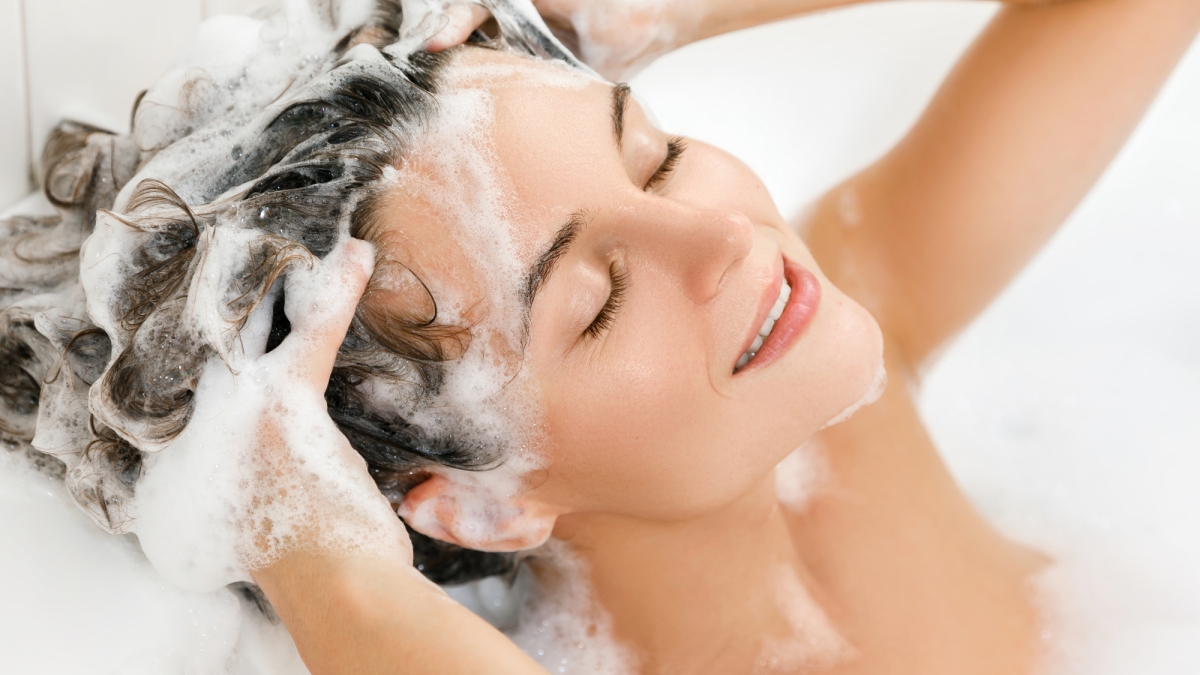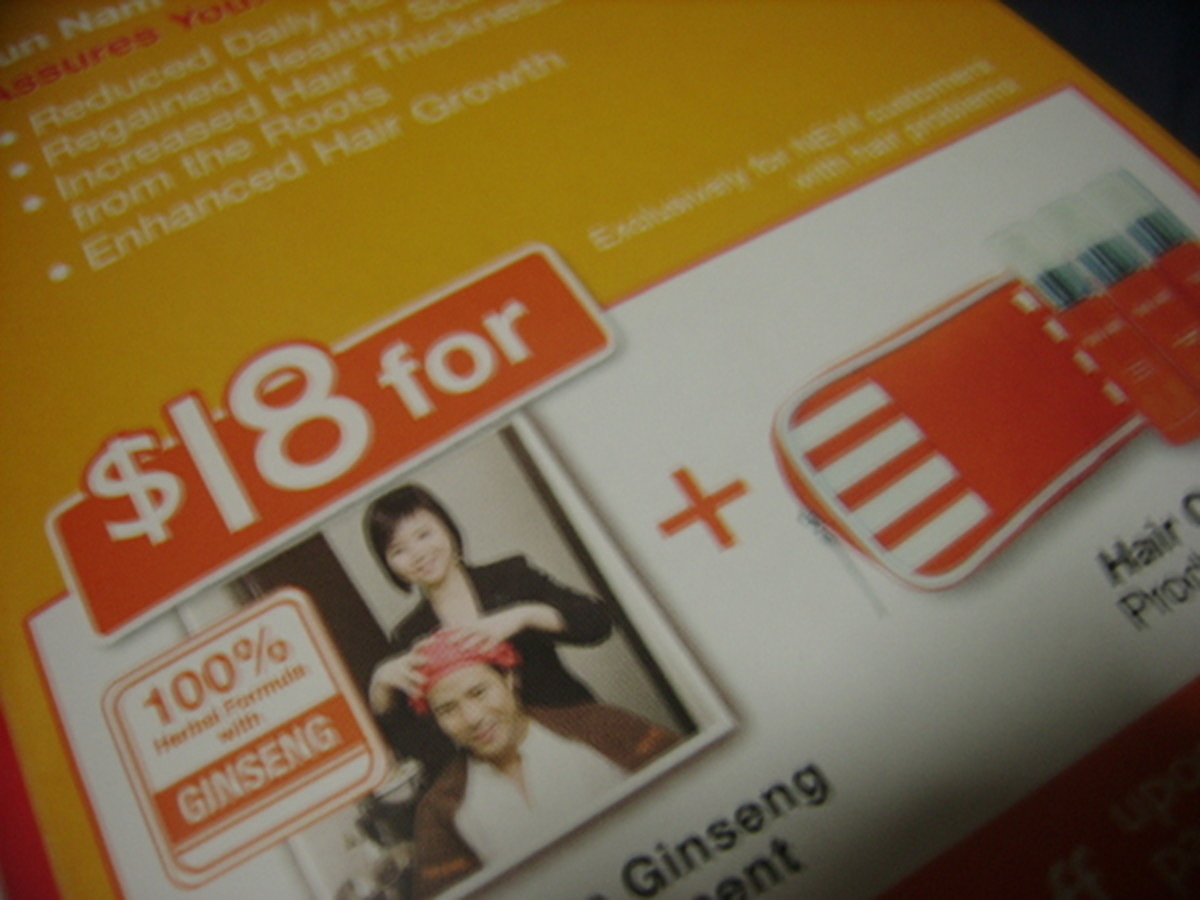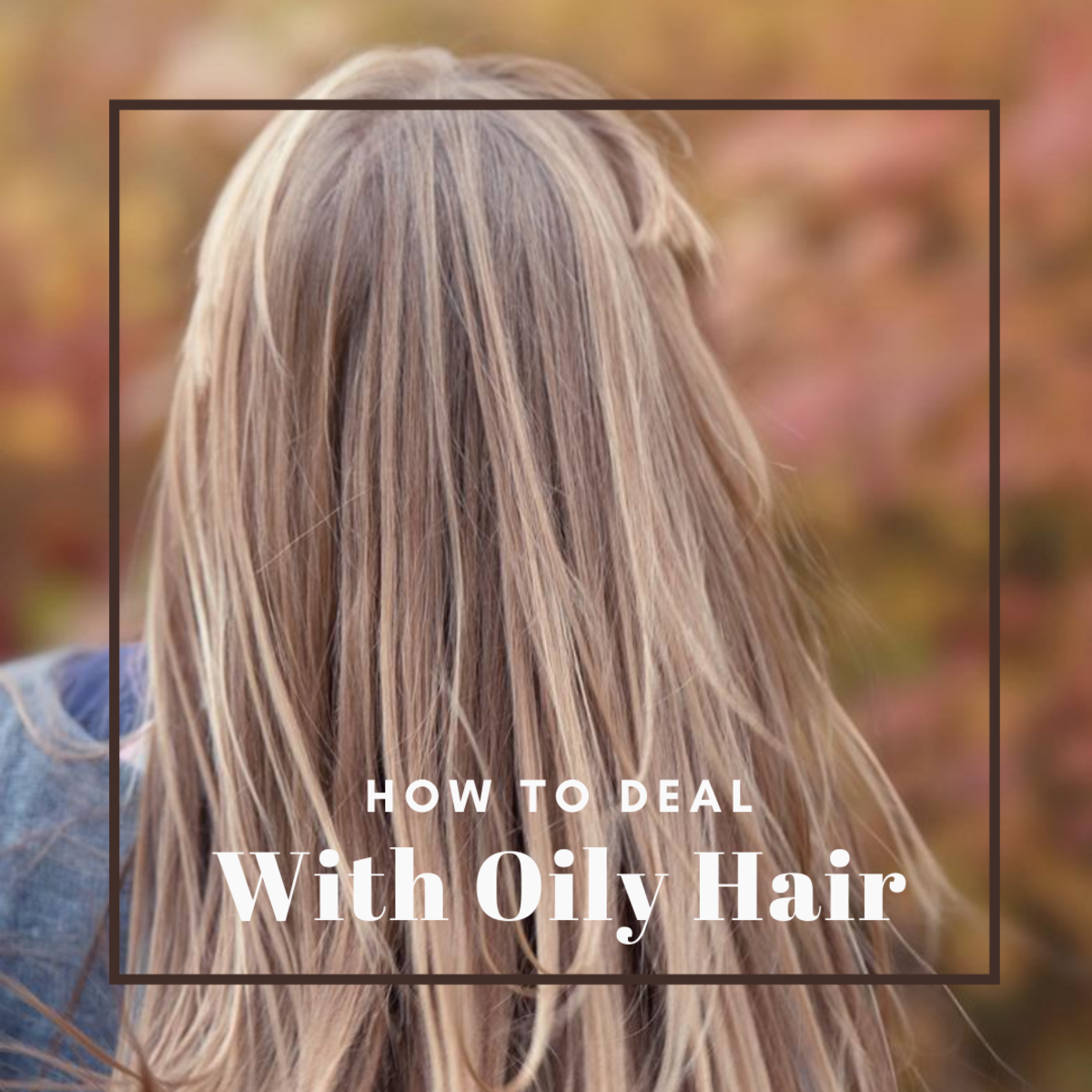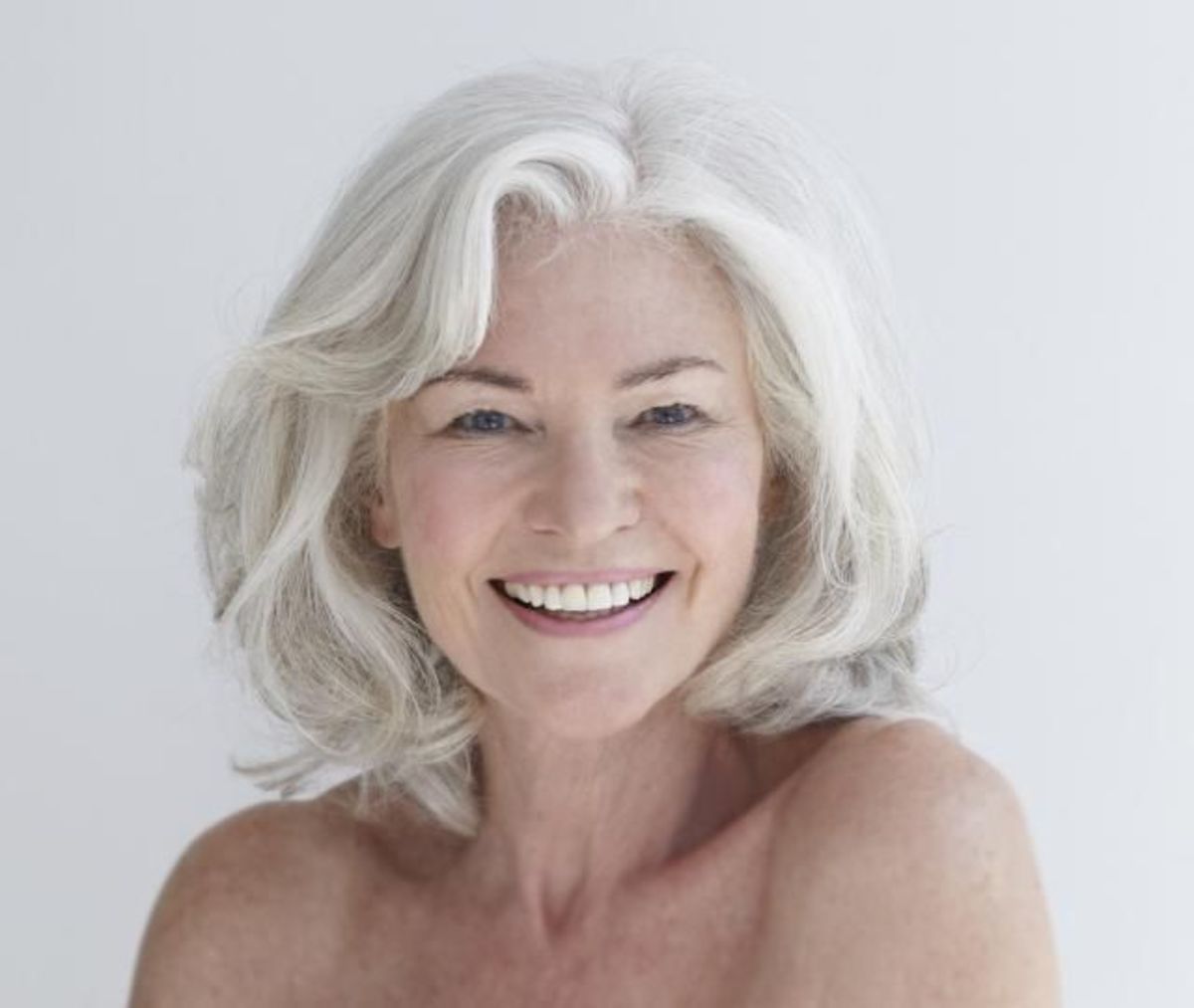Ditch the Shampoo-Frugal and Chemical Free Hair Care
Fresh Clean Hair That Has Not Seen Shampoo In Months

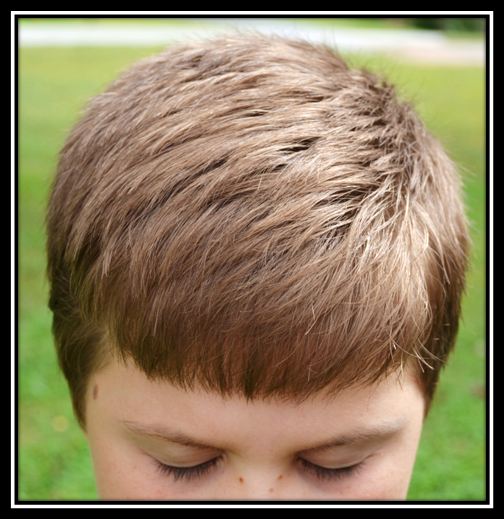
Reasons Not To Use Shampoo
Everyone loves thick luxurious hair and envy others who have gorgeous locks. People the world over spend hundreds or even thousands of dollars a year to get it. Most begin their hair regime by choosing a shampoo, sometimes keeping two or three at hand. One strips the buildup the other hair care products have caused; another was likely purchased because the commercial was so convincing that the user was sure she would also attract men by swinging her long tresses through the air. The fact is that we do NOT need any of these shampoos. Why in the world not? Let’s explore the facts.
The shampoo industry is huge, generating revenue exceeding 49 Billion (yep, billion with a B) dollars in 2010 and projections are expecting the shampoo market to reach or pass 58 billion dollars be the year 2015. That is a lot of money folks. I prefer to keep my money for more important uses such as food for my kids.
Additionally shampoos are made with many chemicals, many of them known carcinogens. Most products used in shampoo are not allowed in foods. Since skin is the body’s largest organ, why would we use them on our body? Obviously overtime, they are absorbed through the skin and cause problems inside the body. Some of them include:
- PROPYLENE GLYCOL (PG)-Used as a wetting agent in shampoos, PG is the main ingredient found in antifreeze. Workers in factories where PG is used are required to wear gloves and protective clothing yet unsuspecting shampoo users pour it over their heads every day. PG is proven to cause kidney, liver and brain abnormalities.
- SODIUM LAURYL SULFATE (SLS) and/or SODIUM LAURETH SULFATE (SLES)-Used as a detergent in most all shampoos, these chemical compounds are the same ones used in soaps used to clean automobiles, to clean car engines and in commercial floor cleaners. SLS and SLES cause skin irritation, asthma, eye malformations in children, depression and damage the immune system among others. Studies prove SLS is able to enter the body through the skin and remains in the tissues for five days, eventually leaving residues in the internal organs and brain.
- IMIDAZOLIDINYL UREA and DMDM HYDANTOIN-This preservative releases formaldehyde, just like the product coroners use to preserve dead bodies. It weakens the immune system, causes asthma, headaches, pain and swelling of the joints, depression and ear infections (think kids!) among many other illnesses and diseases. Almost every shampoo contains these known cancer causing ingredients.
- FRAGRANCE-Everyone wants their personal care products to smell great. Advertisements promise the user will float away to a tropical paradise or be joined in the shower by the gorgeous man/woman of your dreams if you only use their shampoo. But fragrance comes with a high cost to one’s health. Just the word fragrance should be an alert. It indicates that up to 4,000 ingredients might have been used to create that scent, virtually all of them synthetic. Known issues from using fragrances include damage to the nervous system, hyperactivity (think ADHD in kids!) irritability, depression and other issues related to nerve damage.
There are many more, too many to list here. Let us move on to how we can eliminate shampoo from our homes.

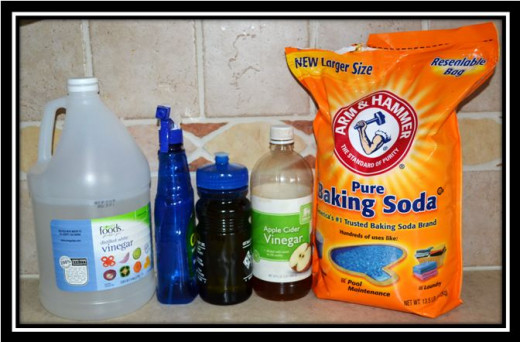
What You Will Need
- White or apple cider vinegar
- Baking soda
- Squirt or spray bottle-Please re-purpose one instead of buying new
- Water
That's it!

Instructions
Normal to Dry Hair
- Mix 1/2 cup of vinegar with 2 cups of water. Place in bottle of choice and leave in shower. Shake before using. Increase vinegar amount as desired or needed.
This works great for normal hair and the vinegar also acts as a conditioner, softening the hair. I have naturally curly hair and do not need a detangler at all. My son has normal boy hair with a lot of body and vinegar works well for his hair also.
Oily Hair
- Mix one tablespoon baking soda to one cup of warm water. Shake until baking soda is dissolved. Leave in shower and shake before using.
Baking soda is wonderful for oily hair as it works to cut the natural oils that occur on the scalp. Additionally it will remove the build up caused by years of hair care products being dumped on the hair. After a week or so, the user may find they can mostly use the vinegar option unless the hair is very oily. Much of the time oiliness is caused by the products we use and will resolve itself when shampoo use is discontinued.

What To Expect
We are trained to expect lots of suds and foam when cleaning our hair. The new natural way will NOT provide lathering. It takes a while to get used to that. Just bear with it. Remember the health and cost saving benefits.
The hair PH (level of acid or alkaline) must adjust. The first week or so might find your hair in shock just like the body when we begin an exercise routine. If it becomes oily, use baking soda for a few days. Almost everyone can eventually use just vinegar and water as time goes by.
The product will smell like vinegar when applied. After it is rinsed and dry there will not be a scent at all. I have used vinegar to clean my hair for a very long time now and no one has ever smelled it even when I have asked friends to do so. (I have great friends who are well trained not to ask questions.)
Be prepared to have people shocked when you tell them you no longer use shampoo (or conditioner). Some will not be supportive at all.
Once the hair adjusts to the shampoo free cleaning, almost every person finds they do not need conditioner. That we do is another myth. Commercial shampoos strip the hair of natural, healthy oils and we replace them with conditioners that also contain damaging chemicals.
When the hair is wet you may have trouble running your fingers through it. Combing it out will not be an issue though and it will dry shiny and full of body.
If hair get dry and feels brittle, you are using too much baking soda. Use no more than one tablespoon to one cup of water.
If hair is limp and oily after a reasonable adjustment period, increase the times you use baking soda. It will remove oils. Vinegar may still be used as a conditioner rinse.
Hair will most likely not require cleansing as often as you are now doing. As a PH balance is reached and stabilized, one can go up to a week without cleaning it.
These vinegar and baking soda solutions can be used on babies and toddlers. As with all products, do not allow into the eyes or ears.
My Own Hair After Months Of No Shampoo

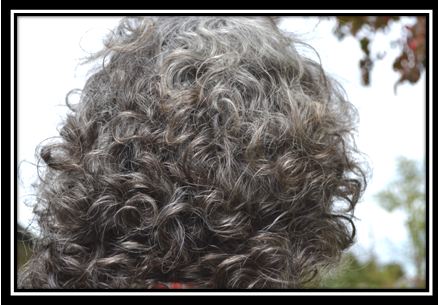

To Poo or Not to Poo, That Is the Question I Ask of You
Will You Now Stop Using Shampoo?

Agency for Toxic Substances and Disease Registry




